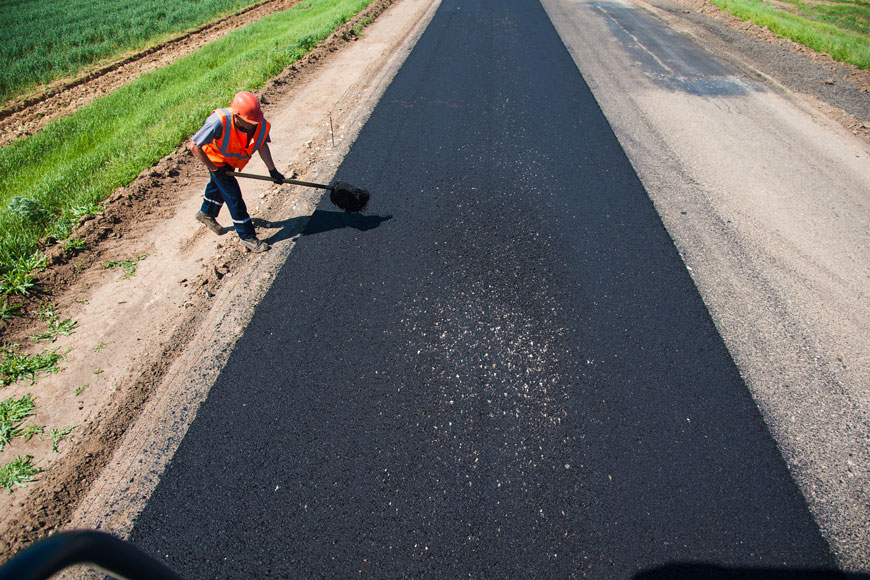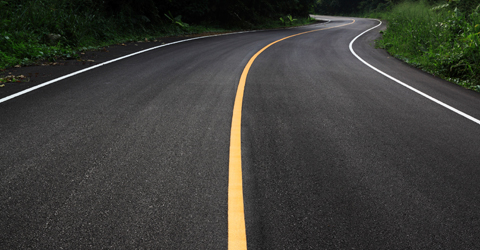Exploring the Ecological Benefits of Hot Mix Asphalt
The utilization of Hot Mix Asphalt in infrastructure jobs provides a compelling case for sustainable development and environmental stewardship. By diving into the intricate details of its production procedures and the innovative use of recycled materials, a much deeper understanding emerges of how this modern technology goes past simple surface applications. The ecological benefits of Warm Mix Asphalt extend much beyond initial perceptions, using a nuanced viewpoint on just how this product can lead the way for a greener future.

Decreased Greenhouse Gas Emissions
Hot Mix Asphalt manufacturing offers a significant reduction in greenhouse gas discharges compared to other pavement products. The production procedure of Warm Mix Asphalt includes warming the blend of aggregate and asphalt binder to high temperatures. This procedure needs much less energy contrasted to the production of alternative pavement products, causing lower greenhouse gas discharges. Additionally, making use of recycled materials in Warm Mix Asphalt additionally adds to minimizing its environmental impact. By including reclaimed asphalt pavement and recycled asphalt tiles into the mix, the requirement for virgin materials is decreased, resulting in power savings and lowered discharges related to removal and handling.
Research studies have shown that Hot Mix Asphalt pavements have a smaller sized carbon impact over their life cycle compared to other sidewalk choices. The resilience and recyclability of Hot Mix Asphalt additionally enhance its ecological advantages by reducing the need for frequent maintenance or replacement, thus conserving resources and minimizing emissions connected with restoration tasks.
Power Efficiency and Preservation
The manufacturing procedure of Warm Mix Asphalt not only reduces greenhouse gas exhausts but likewise adds considerably to energy efficiency and preservation efforts. Energy performance is a vital benefit of Warm Mix Asphalt production contrasted to other pavement types. The procedure includes warming the materials at heats to develop the asphalt mix, which requires much less power than alternate methods. In addition, the capability to recycle and reuse asphalt sidewalk better enhances energy conservation. By integrating redeemed asphalt pavement (RAP) into new mixes, the market conserves power that would have been required to generate totally new products. In addition, the durability of Hot Mix Asphalt lowers the regularity of maintenance and restoration, causing lasting energy cost savings. This long life lessens the energy-intensive processes entailed in frequent fixings and replacements. Generally, Warm Mix Asphalt stands apart as an environmentally friendly choice that prioritizes power efficiency and preservation throughout its lifecycle.
Sustainable Pavement Solutions

One secret facet of lasting sidewalk options is using recycled materials such as redeemed asphalt sidewalk (RAP) and recycled asphalt tiles (RAS) By integrating these products into the asphalt mixtures, the demand for virgin sources is reduced, leading to lower energy usage and greenhouse gas discharges throughout production. Additionally, the reuse of these materials aids divert waste from landfills, adding to a more sustainable and circular economic climate.
Moreover, lasting pavement solutions concentrate on maximizing pavement style to boost efficiency and longevity. Methods such as cozy see this website mix asphalt (WMA) and stone mastic asphalt (SMA) boost the resilience and resilience of pavements, reducing the requirement for regular repairs and replacements. By executing these cutting-edge methods, infrastructure designers can develop pavements that not just satisfy high-performance requirements but likewise decrease their ecological footprint.
Minimized Environmental Influence
With an emphasis on sustainability and eco-conscious techniques, pavement remedies are developed to reduce the ecological impact of construction and upkeep procedures. Hot mix asphalt, specifically, provides numerous benefits that add to lowering the overall environmental footprint of roadway facilities. One vital element is the recyclability of asphalt, which can be recycled several times without compromising its quality. This characteristic helps in preserving natural sources and minimizing the amount of waste sent out to landfills.
Moreover, the manufacturing of warm mix asphalt discharges lower levels of greenhouse gases contrasted to various other pavement materials, making it an extra eco-friendly alternative. The energy performance of asphalt plants has actually also improved throughout the years, bring about decreased gas usage and lower emissions. In addition, the smooth surface of hot mix asphalt lowers rolling resistance for automobiles, resulting in lower gas usage and decreased air pollution from vehicle emissions.
Payment to Environment Adjustment Reduction
Hot mix asphalt plays a critical duty in mitigating environment adjustment through its lasting residential properties and reduced ecological influence. One considerable contribution to climate change reduction comes from the power performance of warm mix asphalt production. Compared to various other sidewalk options, the production process for warm mix asphalt consumes less energy and discharges reduced levels of greenhouse gases, hence reducing its total carbon footprint.
Furthermore, hot mix asphalt's capability to reflect sunlight, recognized as albedo, helps in minimizing urban heat island effects. By minimizing warm absorption and retention, hot mix asphalt pavements can reduce the demand for cooling in metropolitan locations, subsequently reducing greenhouse gas discharges connected with energy consumption for cooling objectives.
Additionally, the sturdiness and recyclability of hot mix asphalt even more enhance its environment modification reduction abilities. Regrading. The lengthy life expectancy of asphalt pavements decreases the demand for regular fixings or replacements, eventually lowering the carbon emissions linked to roadway upkeep tasks. In addition, the recyclability of asphalt click for more info products minimizes the demand for virgin resources and reduces the environmental effect of sidewalk building, lining up with lasting techniques for climate adjustment mitigation.
Final Thought
To conclude, the environmental benefits of Warm Mix Asphalt demonstrate its significant contribution to decreasing greenhouse gas emissions, conserving energy, and reducing environmental influence. This lasting sidewalk solution aligns with environment adjustment mitigation efforts, home promotes source preservation, and improves infrastructure growth. By using recycled materials, energy-efficient production processes, and long lasting layout, Hot Mix Asphalt plays a crucial duty in promoting a more environmentally friendly strategy to infrastructure construction.
The manufacturing process of Warm Mix Asphalt entails heating up the mix of accumulation and asphalt binder to high temperatures. By integrating redeemed asphalt pavement and recycled asphalt tiles right into the mix, the requirement for virgin materials is minimized, leading to power financial savings and decreased exhausts associated with removal and handling.
One key element of lasting pavement solutions is the use of recycled products such as redeemed asphalt pavement (RAP) and recycled asphalt tiles (RAS) Techniques such as cozy mix asphalt (WMA) and rock mastic asphalt (SMA) boost the toughness and strength of pavements, minimizing the need for frequent repair work and replacements. Contrasted to other sidewalk options, the manufacturing procedure for warm mix asphalt eats less power and gives off lower levels of greenhouse gases, therefore lowering its general carbon footprint.